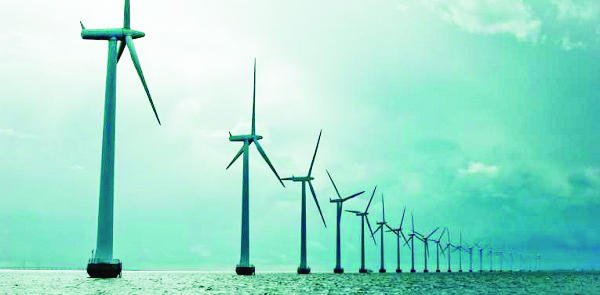
Britain is set to miss 2020 renewable energy target
Britain is set to miss its 2020 European renewable energy targets, a parliamentary committee report said on Friday, setting a poor example for less wealthy countries as the world tries to rein in global warming.
Britain has a target to meet 15 percent of its energy needs from renewable sources by 2020, but had achieved just over 8 percent by the end of 2015.
"The UK will miss its 2020 renewable energy targets without major policy improvements," said Angus MacNeil, chair of the cross-party Energy and Climate Change Committee.
Britain's electricity sector is on course to meet its expected contribution to the target but energy used in transport and for heating homes and buildings is well behind what is needed, the committee report said.
The renewable target is a legally binding commitment set by the European Union.
"Our priority is providing secure, affordable and clean energy for families and businesses. Renewable energy already makes up around 25 percent of our electricity and we're on track to hit our overall targets," a spokeswoman for the Department for Business, Energy and Industrial Strategy (BEIS) said.
Britain could be fined if it misses the target, although Britain's decision earlier this year to leave the European Union means the status of such targets is unclear.
However, the lawmakers said a lack of clarity should not deter the country from trying to meet the goal.
"We agreed our 2020 renewable energy targets as part of the EU but they still have many merits, even as the UK Government prepares for Brexit," MacNeil said.
"If the UK reneges on these targets, it will undermine confidence in the Government's commitment to clean energy and the climate targets agreed in Paris," he said.
Last year, more than 190 countries agreed at climate talks in Paris to limit increases in global temperatures to well below 2 degrees.
Britain has been seen as a leader in efforts to fight climate change and has a domestic target to cut emissions by 80 percent compared with 1990 levels by 2050.
"The latest Climate Change Performance Index shows the UK is the second best country in the world on tackling climate change," the BEIS spokeswoman said.
Meanwhile, the head of euro zone finance ministers Jeroen Dijsselbloem said on Friday Britain must make up its mind on the start of formal divorce procedures with the European Union as its economy stands to lose the most from the prolonged uncertainty.
EU leaders have pressed Britain to initiate formal exit talks as soon as possible after voters chose to split from the bloc in a referendum in June, although the government plans to take until at least the end of the year to form a negotiating stance.
"For the Brexit process, it really is up to the British to make up their minds, in terms of when to start and how to get it on the road," Dijsselbloem told reporters in Bratislava before a meeting of the Eurogroup countries using the euro currency.
"I think, in the end, it will be the British economy that is damaged most, which I don't hope for but, I mean, this is my concern."
He also said he felt there was a strong political commitment from the EU's remaining 27 members to move forward together.
Other ministers said the so-called Brexit would be part of talks that should focus on improving the EU.


























